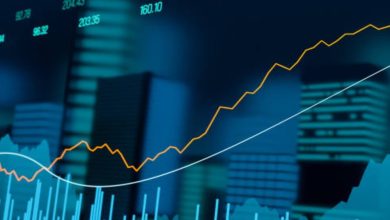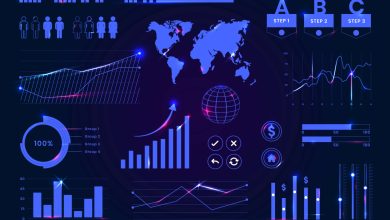
Gain a competitive edge – leveraging advanced trading platforms
Advanced trading platforms are sophisticated software applications designed to streamline the trading experience. They provide traders with tools and resources to help them make informed decisions, execute trades efficiently, and manage their portfolios effectively.
Automated trading capabilities
Advanced trading platforms often offer advanced automated trading capabilities and can be a game-changer for traders looking to capitalize on market opportunities quickly and efficiently. Automated trading systems, also known as algorithmic trading or algo-trading, enable traders to execute trades based on pre-defined rules and strategies for constant manual intervention. These systems monitor market conditions, identify trading signals, and execute trades automatically, reducing the risk of human error and emotional bias. Automated trading is beneficial for traders. High-frequency trading strategies, speed, and efficiency are critical.
Multi-asset and multi-market capabilities
Traders often need to diversify their portfolios across multiple asset classes and markets. Advanced trading platforms cater to this need by providing multi-asset and multi-market capabilities, allowing traders to trade a wide range of instruments, stocks, bonds, currencies, commodities, and derivatives, all from a single platform. This streamlined approach offers traders a consolidated view of their positions and exposure across various markets, enabling them to manage their portfolios more effectively. Additionally, many advanced platforms offer seamless integration with multiple brokers and exchanges in the trading process and provide access to a broader range of markets and instruments.
Advanced reporting and compliance tools
Regulatory compliance and record-keeping are critical aspects of trading, and advanced trading platforms offer robust reporting and compliance tools to help traders stay compliant and maintain accurate records. These platforms often feature trade blotters, audit trails, and customizable reporting capabilities for traders to generate detailed reports on their trading activities, positions, and performance. Advanced platforms integrate with regulatory reporting systems, enabling traders to streamline compliance processes and meet all relevant reporting requirements. These tools are valuable for institutional traders and investment firms, which often operate under stringent regulatory frameworks my review here.
User-friendly interface and customization
While advanced trading platforms offer many features and tools, they are often designed with user-friendly interfaces and customization options to ensure a seamless and personalized trading experience. Many platforms allow traders to customize their workspaces, creating tailored layouts and hotkey configurations that suit their trading styles and preferences. Additionally, advanced platforms often offer customizable alerts and notifications to traders to stay informed about critical market events, price movements, and trading signals without being overwhelmed by unnecessary information.
Mobile and multi-device support
Traders demand access to their trading platforms and portfolios from anywhere, at any time. Advanced trading platforms recognize this need and offer robust mobile and multi-device support, allowing traders to monitor their positions, place trades, and access market data from their smartphones, tablets, or other devices.
This mobile accessibility ensures that traders never miss a trading opportunity, even when they are away from their primary trading workstations. Moreover, many advanced platforms offer seamless synchronization across devices, allowing traders to pick up where they left off, regardless of the device they are using.
Ongoing support and education
Leveraging advanced trading platforms is a complex endeavor, and it is new to these sophisticated tools. Fortunately, many reputable platform providers offer comprehensive support and education resources to help traders get the most out of their platforms. These resources may include online training courses, webinars, user guides, and dedicated support teams to assist traders with technical issues or platform-specific questions. Additionally, some providers offer access to trading communities and forums, where traders connect with peers, share insights, and learn from experienced users.




